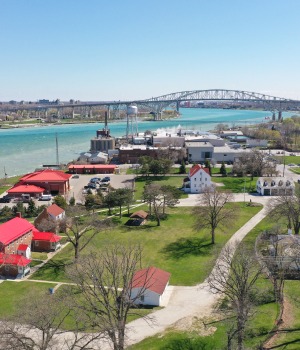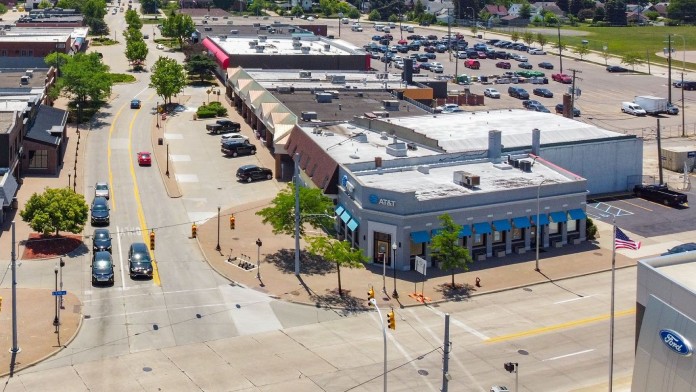Drug and Alcohol Statistics in St. Clair Shores
St. Clair Shores drug rehabs work with county and state agencies to provide treatment to anyone with an addiction. They offer quality services at the detox, inpatient, and outpatient levels of care.2
In 2021, thousands of residents received services at Macomb County drug rehabs. Below is the number of treatment admissions and the primary reason in 2021:3
2,351 for alcohol
411 for cocaine
2,252 for heroin
381 for prescription painkillers
129 for methamphetamine
96 for marijuana
Unfortunately, not everyone who needs help reaches out for it, and dire consequences occur, like these in recent years:4
269 opioid overdose deaths
610 traffic crashes involving alcohol
201 traffic crashes involving drugs
150 opioid hospitalizations
Because the St. Clair Shores rehabs offer treatment to anyone, no matter their financial status, no one needs to suffer the same consequences. Help is available and easy to access.2
Levels of Substance Abuse Care
There are several levels of care for addiction treatment. Some people enter treatment at one level, while others start with inpatient and make their way through the continuum of care.
Alcohol and Drug Detoxification
Detox is the process of safely and comfortably removing drugs or alcohol from your system. Performed under medical supervision in a hospital, residential, or outpatient setting, your withdrawal symptoms are comfortably managed, allowing you to transition into formal treatment services.
Inpatient Drug and Alcohol Rehab
Residential or inpatient treatment involves living at the rehab facility and receiving 24/7 care under supervision. A combination of treatment interventions are offered, including individual and group therapy, nutritional counseling, experiential therapies, and medication.
Partial Hospitalization Programs (PHPs)
PHPs allow you to live at home while attending treatment at a hospital. You may receive many of the same treatment modalities of inpatient care, with the difference being that you can return home during non-treatment hours. PHPs can be a bridge between inpatient and outpatient care.
Intensive Outpatient Programs (IOPs)
A step down from a PHP, IOPs allow you to attend a few hours of counseling over several days each week. You spend the rest of your time at home, working, or fulfilling other obligations.
Standard Outpatient
The least intensive treatment option, standard outpatient care involves one to two hours of treatment per week. This option has the least oversight and supervision. Highly motivated people with a strong support system tend to find this level beneficial.
Relapse Prevention
Relapse prevention, also known as aftercare, begins when a rehab program is complete. People receive forms of ongoing support and encouragement through 12-step groups, non-12-step groups like SMART Recovery, ongoing therapy, sober living homes, and more.
How to Pay for Substance Addiction Treatment in Saint Clair Shores, Michigan
Private Insurance
By law, all insurance providers are required to cover substance abuse and mental health treatment services in some capacity. Call your provider to learn about your specific coverage, including your deductible and copay.
Michigan Medicaid
Michigan’s Medicaid program provides health insurance to low-income residents. It covers various treatment services like inpatient drug rehab and outpatient substance abuse treatment. Make sure to ask if the treatment center you’re interested in accepts Medicaid.
Michigan Medicare
Michigan Medicare is a government program providing coverage to residents with end-stage renal disease and those over the age of 65. You can use Medicare to cover the cost of drug addiction treatment services, including rehab.3 Some rehabs don’t accept Medicare insurance, so it’s important to do your research.
TRICARE in Michigan
Michigan TRICARE is a government program providing health insurance coverage to the U.S. Armed Forces military personnel, veterans, and their families and dependents. TRICARE covers addiction treatment services, such as rehab and medication-assisted treatment.
Sliding Scale Rehabs
Sliding scale rehabs are income-based, charging only what a resident can reasonably afford to pay. In order to qualify for a sliding scale rehab in Michigan, be prepared to provide proof of income.
IHS-Funded Drug Rehabs
Drug rehabs funded by the Indian Health Service provide free addiction treatment to Indigenous people in the U.S. and Alaskan Natives.

Traveling to and Within St. Clair Shores
You have many options when traveling to St. Clair Shores, whether for entering rehab or visiting someone you know in treatment. Serving 13 different airlines, the Detroit Metro International Airport is less than 20 miles away on I-94.
Getting Around
Ground transportation choices to get you from the airport to the Macomb County drug rehab includes the following:
- SMART is Michigan’s public transportation system. The new program, FAST, connects Detroit Metro to the suburbs5
- Shuttle services
- Car rentals
- Metro cars
- Metro cabs
- Ride-share services
Places to Stay
Options of where to stay in St. Clair Shores include:
- Hotels
- Motels
- Inns and Bed and Breakfasts
- Air BnB and VRBO
- Campgrounds
- RV parks
Things to Do
When you are not attending activities at a St. Clair drug rehab, you want to find things to do that support your recovery. Macomb County offers the following:6
- Amusement centers
- Sports complexes
- Nature centers
- Water trails or blue ways
- Hiking and biking trails
- Orchards and mills
- Public parks
- Golf courses
- Arts and cultural events
- Educational activities
Starting fresh, whether you live in the area or not, can begin today at a drug and alcohol rehab in St. Clair Shores.
Michigan Alcohol and Drug Laws
Michigan lawmakers and public health agencies enacted the following laws related to substance misuse and overdoses:1
Michigan Good Samaritan Overdose Law: This law encourages witnesses to call 911 when someone is experiencing an overdose and protects them from prosecution for minor drug-related charges.
Michigan Naloxone Access Law: Pharmacists in Michigan can dispense Narcan (naloxone) without a prescription, increasing access to this life-saving opioid overdose reversal medication.
Michigan Driving or Operating Under the Influence Laws: A first offense of driving or operating under the influence of alcohol or liquor (OUIL) or drugs (OUID) results in a fine up to $500, imprisonment up to 93 days, and/or driver’s license suspension for up to two years.4 Additional offenses can lead to imprisonment of up to five years and driver’s license revocation for up to five years.
Michigan Regulation and Taxation of Marijuana Act: In 2018, the Michigan Regulation and Taxation of Marijuana Act legalized recreational marijuana for adults over the age of 21. Michigan state law specifies all use of cannabis must be done in private; it is illegal to use cannabis in a public space. It is also illegal to carry cannabis in areas frequented by children, such as schools or school buses.
Resources
- Michigan Department of Health and Human Services. 2018. Substance Use in Michigan Drug Overdose Deaths in Macomb County.
- Macomb County Community Mental Health. 2022. Substance Use Services.
- Macomb County, Michigan. 2022. Macomb County Data: Drug Related Deaths in Macomb County.
- Michigan Department of Health and Human Services. 2018. Substance Use in Michigan Data.
- SMART. 2022. St. Clair Shores.
- Macomb County, Michigan. 2022. Make Macomb Your Home.


